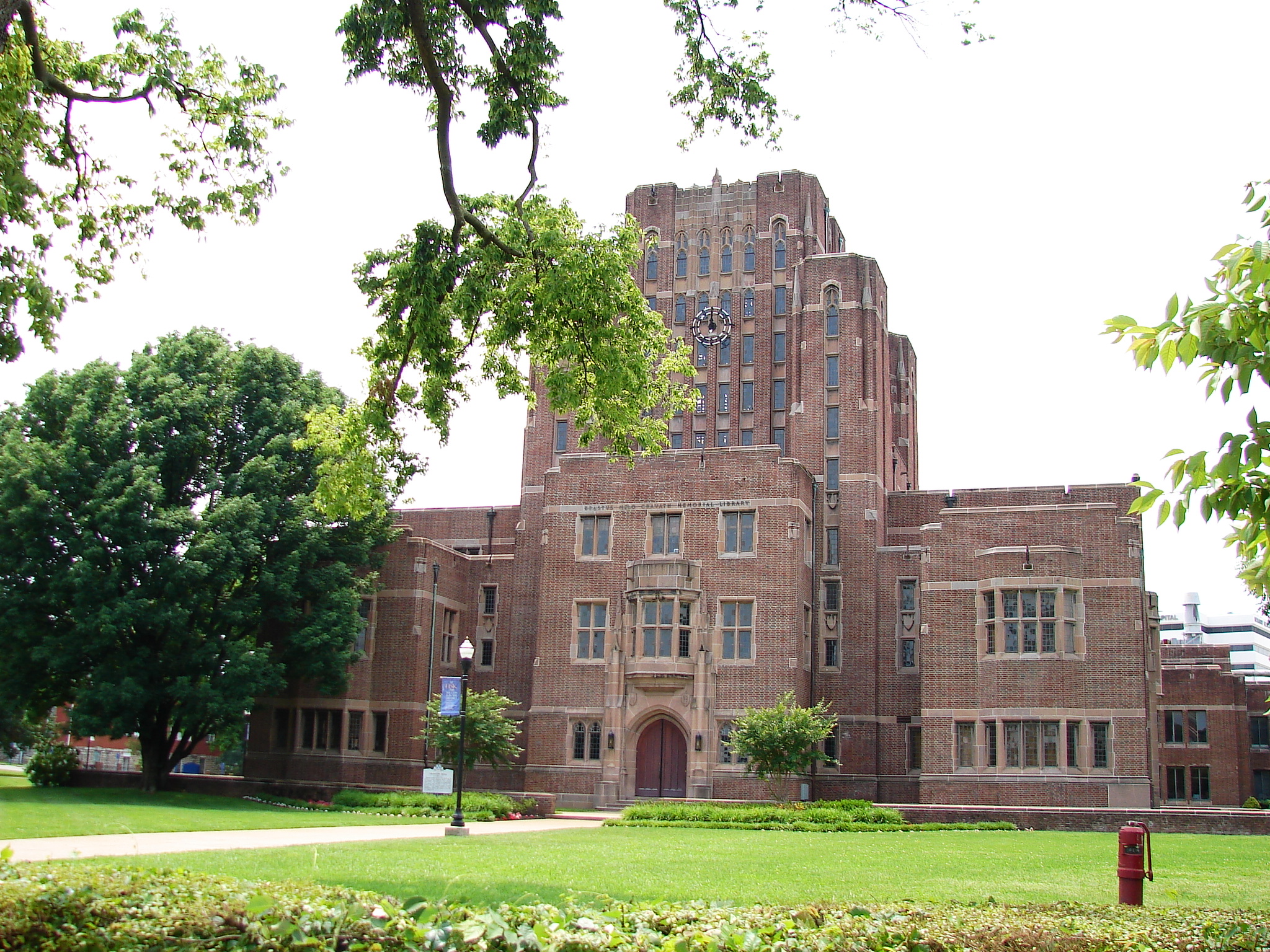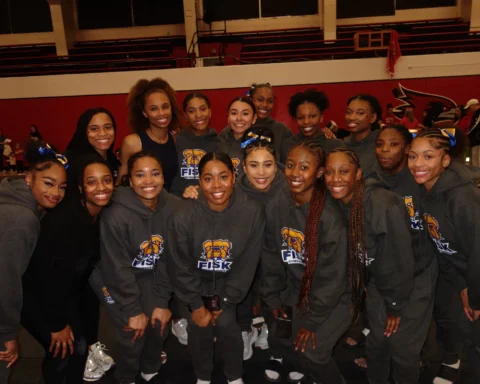Courtesy of Fisk University
The project will reimagine Burrus Hall on Fisk’s campusas a community space to support the next generation of entrepreneurs in North Nashville and across the city.
The Freeman Family will join Mayor Cooper and others for a kickoff ceremony Monday January 9th at 2pm
Nashville, TENN. – On Monday, Mayor John Cooper and Fisk University will announce the launch of the Darrell S. Freeman Sr. Incubation and Innovation Center. This Center will focus on supporting the next generation of startups and entrepreneurs and will be housed at Burrus Hall, which has stood at the corner of 16th Avenue N. and Meharry Blvd. since 1945. This innovativepartnership will transform Burrus Hall into an incubation and innovation facility with more than 13,000 square feet of flexible space for programming and engagement. Once finished, The Freeman Center will provide wraparound services, resources, and programming for students, faculty, and members of the community as they strive to scale their businesses and test their ideas.
Metro’s COVID-19 Financial Oversight Committee approved $10 million of federal American Rescue Plan Act funding for the project to refurbish Burrus Hall on November 30, 2022, and Metro Council approved the funds unanimously on December 19, 2022.
“For too long, Nashville paid wealthy, out-of-state corporations to bring jobs here instead of creating and growing businesses by investing in local entrepreneurs already living in our city. With Burrus Hall, we’re investing in our own residents’ futures by transforming this historic building at Fisk University into an innovation and entrepreneurship center to create the next generation of Nashville’s business leaders,” said Mayor John Cooper. “Born through the work of the late, great Nashville entrepreneur and business icon Darrell Freeman, this center will be a place where emerging business owners can access resources, make connections to investors, take classes and more. As Nashville’s first public-private partnership with our oldest institution of higher learning, this initiative will help bring the opportunity of Nashville to communities that haven’t benefited from our city’s growth. This is how we build wealth for all ofour residents.”
The new space will host tech boot camps, as well as programs including mentoring, classes, workshops, and events. The Freeman Center will aim to be a jumping-off point for ideas that entrepreneurs can spin out into self-sustaining businesses or for further private investment. Similar models are housed at top universities throughout the nation.
“Incubators are distinct ecosystems populated by curious and inquisitive entrepreneurs, free agents, programmers, designers, dreamers, angel investors, tinkerers, venture capitalists and this Center marks the next stage in Nashville’s remarkable development,” said Fisk University Executive Vice President Jens Frederiksen. “The late Darrell Freeman knew this and he embodied everything this center is about: determination, focus and innovation. Over the next many years, students, faculty and community founders will follow in his large footsteps and launch businesses and support neighborhood growth and development.”
“This building is at Fisk, but it is not for Fisk. It is for us. The communal us. You, me, and anyone wanting to turn their business dreams into a money-making reality,” said Shanna Berkeley and Marcia Smith, Executive Director and Director, Corner to Corner.
“The Nashville Entrepreneur Center is proud to continue our partnership with Fisk and provide dynamic advisory and mentorship support to students and entrepreneurs in our North Nashville community,” said Brittany Cole, Chief Equity & Inclusion Officer, Nashville Entrepreneur Center.
“Collaborating to inspire, empower and enhance lives within and beyond a community through the impact of providing information, resources, education and access. Ultimately, our goal is to provide all the wealth building tools for current and future generations,” said Deputy Mayor of Community Engagement Brenda Haywood.
“Successful entrepreneurial ecosystems require attracting, retaining, and cultivating talented people, and meaningful collaboration between universities, government, and the private sector so that talent supply and demand are efficiently matched. And over time, successful entrepreneurial ecosystems become talent magnets and talent incubators,” said Brynn Plummer, Vice President and Director of Diversity, Equity & Inclusion, Alliance Bernstein.
“Nashville lags behind other cities in meeting the needs of small businesses and entrepreneurs. Building and creating more spaces where folks can get the support needed to start, grow, and scale businesses is critical to creating an equitable city that can compete in the future,” said LaTanya Channel, Metro Nashville Director of Economic Growth and Small Business Development.
“Research has shown that when low-income/underprivileged entrepreneurs participate in incubation programs, they can grow 22% in revenue, and 15% in employment (within 6 months). What this means for Davidson County is that small business owners of all industries can access the programs and resources they need to scale – not just to build personal generational wealth, but to become job creators for their community,” said Holly Rachel and Lena Winfree, President and Vice President, Blacks in Technology – Nashville.
“I believe making an investment in business ecosystems that provide minority entrepreneurs equitable access to resources and expertise will help remove barriers and obstacles that make it unnecessarily challenging to closing the wealth gap. That restorative effect, along with economic gains, would be a huge step forward for Nashville, both socially and economically,” said Patrick Johnson, Co-Founder & Chief Operating Officer, Recover-Health.





